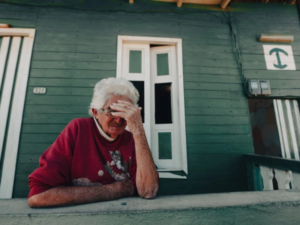The Benefits of Memory Care
Memory… is the diary that we all carry about with us.” – Oscar Wilde
 As our population ages, more families are faced with the challenge of caring for loved ones with Alzheimer’s disease and other forms of dementia.
As our population ages, more families are faced with the challenge of caring for loved ones with Alzheimer’s disease and other forms of dementia.
Memory care facilities provide a specialized type of long-term care designed to meet the unique needs of individuals suffering from memory loss. While the decision to move your loved one into memory care can be difficult, understanding the benefits of these specialized communities can help families make informed decisions.
What is Memory Care?
Memory care is a specific type of assisted living which is tailored to the needs of individuals with dementia, Alzheimer’s disease, or other memory impairments. Unlike traditional assisted living or nursing homes, memory care units are specifically designed to create a safe, structured environment that minimizes confusion and supports the cognitive challenges associated with dementia.
These facilities provide 24-hour supervision and assistance with daily activities. But they go further by offering specialized therapies, memory-enhancing activities, and an environment that promotes safety, comfort, and routine.
Why Use A Memory Care Facility?
- For Safety and Security: One of the biggest concerns for families of individuals with dementia is safety.
- Memory loss can lead to confusion, wandering, and disorientation, which increases the risk of injury. Memory care facilities are designed with safety in mind.
- Common safety features include secured entrances and exits, alarm systems, and circular layouts that prevent residents from becoming lost or frustrated.
- Additionally, trained staff are on hand 24/7 to ensure that residents are safe and accounted for.
- In the case of an emergency, such as a fall or medical issue, help is immediately available, offering peace of mind for families.
- Memory loss can lead to confusion, wandering, and disorientation, which increases the risk of injury. Memory care facilities are designed with safety in mind.
- For Specialized Care and Expertise: Caring for someone with dementia requires a unique set of skills and an in-depth understanding of the disease’s progression.
 Memory care staff receives specialized training in how to communicate with and care for individuals with cognitive impairments.
Memory care staff receives specialized training in how to communicate with and care for individuals with cognitive impairments.- They are trained to handle the behavioral changes, mood swings, and challenges associated with dementia, such as aggression or anxiety.
- In addition to daily caregiving, memory care facilities provide therapies and programs that are specifically designed to slow cognitive decline and enhance memory function.
- These may include music therapy, reminiscence therapy, and sensory stimulation activities that engage the mind and body.
- For Tailored Activities and Cognitive Stimulation: Memory care facilities offer activities specific to the abilities and choices of their residents.
- These activities are designed to stimulate cognitive function, foster social interaction, and enhance overall well-being.
- Depending on their capabilities, residents may participate in activities such as…
- memory games
- arts and crafts
- exercise classes
- gardening
- Regular participation in activities helps reduce feelings of isolation and depression, which are common in individuals with dementia.
- It also promotes a sense of purpose and accomplishment, leading to improvements in mood and behavior.
- For Personalized Care Plans: Memory care communities personalize their approach to caregiving by developing individual care plans that address each resident’s specific needs.
- These plans are tailored to factors like the resident’s stage of dementia, physical health, and personal preferences.
- As dementia progresses, an individual’s care also needs to change, which memory care facilities are able to do.
- The ability to adjust a care plan when needed ensures that the individual receives the appropriate level of support throughout their journey with dementia.
- For Healthy Routines and Predictability: People with dementia often thrive in environments that provide structure and routine.
- Changes in routine can increase confusion and anxiety, making daily life more challenging.
- Memory care facilities are designed to offer a stable, calm environment where residents can engage in…
- familiar activities
- receive meals at regular intervals
- maintain their daily routine
- This consistent structure not only helps reduce confusion but also creates a sense of security, as residents come to understand what to expect throughout their day.
- For Socialization Opportunities: Maintaining social connections is so important for the mental and emotional well-being of individuals with dementia.
 Memory care facilities provide opportunities for residents to interact with their friends through…
Memory care facilities provide opportunities for residents to interact with their friends through…- group activities
- community dining
- recreational events
- Social interaction can help combat feelings of loneliness and depression, which are common among people with dementia.
- Also, the memory care staff is trained to encourage social interaction in a way that feels comfortable and appropriate for each resident’s cognitive level.
- For individuals who may feel overwhelmed by larger group settings, group interactions can be arranged.
- For Relief for Family Caregivers: Caring for a loved one with dementia at home can be physically and emotionally exhausting.
- Memory care offers families a rest, knowing their loved one is in a safe, supportive environment that meets their unique needs.
- This gives family caregivers the opportunity to take a break, focus on their own well-being, or attend to other responsibilities without the constant stress of caregiving.
- In many cases, memory care improves the relationship between the individual with dementia and their family members, as it allows families to spend quality time together without the added pressure of caregiving duties.
For those faced with the challenges of dementia, memory care can be an invaluable resource that supports both well-being and peace of mind.
We are Certified Senior Move Managers recognized by our National Association of Senior Move Managers, NASMM! We are committed to serving our seniors with a high standard of ethics, best business practices and continuing education to help make whatever transition they are going through a Smooth Transition.
Contact us to learn how we can help you and/or your family with senior downsizing and moving anywhere in the Phoenix East Valley area, additionally we can assist if you are moving out of state.
We offer a Free consultation.
We would love to serve you. 480-339-0011

Comments are closed.